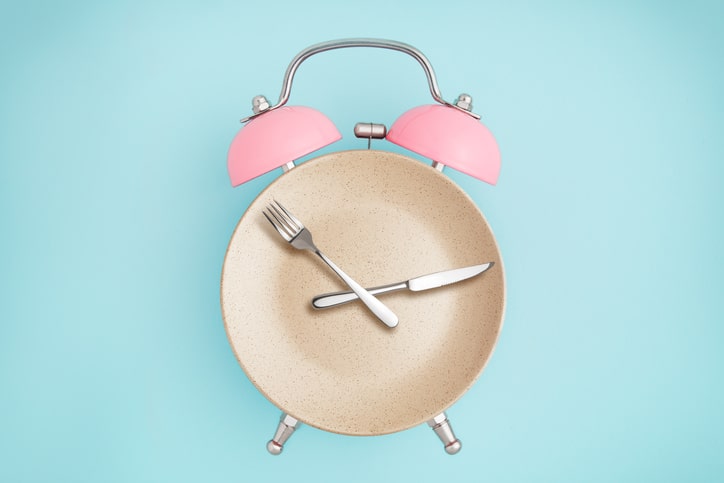For decades, mainstream doctors told us the formula for weight loss was simple…
Eat fewer calories and you’ll lose weight.
As millions of unsuccessful dieters can attest, it doesn’t always work that way.
Now, researchers have found that when you eat may be as important as how much you eat.
Scientists tested this idea in 32 overweight or obese subjects.[1]
They were outfitted with devices that monitored their activity. They also took photos of everything they ate. And they put a time-stamp on the pictures with an app called MealLogger. The research team used all this data to evaluate the subjects’ meal timing.
Dr. Adnin Zaman was the study’s lead author. She found that people who ate more of their calories later in the day were more likely to be overweight.
“Eating later in the day was associated with a higher body mass index and greater body fat,” Dr. Zaman said.[2]
Professor Lona Sandon is program director with the Department of Clinical Nutrition at the University of Texas Southwestern Medical Center. She said that when you consume more calories early in the day, “they may be more likely used for energy…and less likely stored as fat.”
Also, late eating causes the body to store more fat “due to hormone differences at this time of day.”
A second study by Johns Hopkins University researchers confirmed the harmful metabolic effects of late-in-day meals.[3]
The research split 20 subjects into two groups. One ate dinner at 6 p.m. The other group dined at 10 p.m. All the subjects went to bed at the same time, 11 p.m.
The late eaters burned less fat. And they had higher blood sugar levels.
Front Load Your Calories to Stay Trim
The bottom line?
Be sure you have a substantial breakfast and lunch. It will make you less likely to overeat later in the day.
Professor Sandon said that if you skip breakfast and have a light lunch, you’ll end up “eating late into the night because you have barely eaten all day.”
Here are four ways to make it easier to eat earlier in the day…
4 Eating Strategies to Lose Weight
- Keep a food and mood diary. Experts say late day and evening eating is often linked to an emotional trigger. If you can identify a pattern, you can learn to defeat it.[4]
- Follow a meal plan. Studies show that if you plot out what you will eat for the day, you are less likely to eat impulsively. Late eating is often based on impulse.[5]
- Make sure you have protein with every meal. Getting enough protein curbs hunger and snack cravings.[6]
- Make a point of distracting yourself. If you’re prone to eating after-dinner snacks, it may be because you’re bored. Keep your mind occupied with other activities…a hobby, reading, exercise, etc.
Eating earlier in the day is a proven way to lose weight without starving yourself.
Editor’s Note: The key to lasting weight loss is not what goes into your stomach…but what’s happening in your head. Read our monthly journal Independent Healing to discover how two hormones can help you lose weight and keep it off for the rest of your life. Go HERE to find out more.
Related Articles
Scientists Swear by This Weight Loss Trick
Weight Loss Drug Breakthrough? Don’t Believe It
There’s No Evidence No-Cal Sweeteners Help You Lose Weight
References
[1] https://consumer.healthday.com/vitamins-and-nutrition-information-27/weight-gain-health-news-702/want-to-stay-trim-don-t-eat-in-the-evening-study-finds-744152.html [2] https://medicalxpress.com/news/2019-03-day-obesity.html [3] https://www.sciencedaily.com/releases/2020/06/200611094138.htm [4] https://www.ncbi.nlm.nih.gov/pmc/articles/PMC1495575/ [5] https://www.ncbi.nlm.nih.gov/pubmed/24146885 [6] https://www.ncbi.nlm.nih.gov/pubmed/20339363

